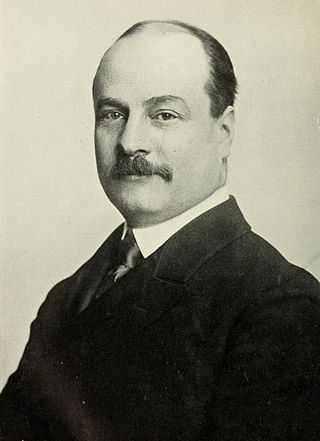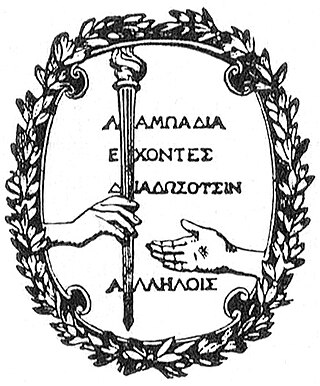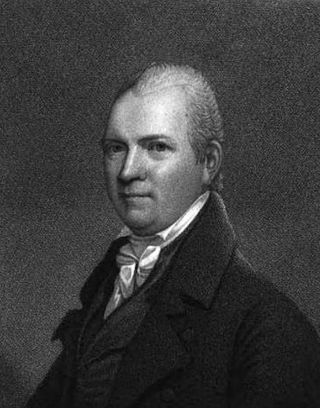
Charles Gates Dawes was an American diplomat and Republican politician who was the 30th vice president of the United States from 1925 to 1929 under Calvin Coolidge. He was a co-recipient of the Nobel Peace Prize in 1925 for his work on the Dawes Plan for World War I reparations.

Nicholas Murray Butler was an American philosopher, diplomat, and educator. Butler was president of Columbia University, president of the Carnegie Endowment for International Peace, a recipient of the Nobel Peace Prize, and the late James S. Sherman's replacement as William Howard Taft’s running mate in the 1912 United States presidential election. The New York Times printed his Christmas greeting to the nation for many years during the 1920s and 1930s.

The Century Magazine was an illustrated monthly magazine first published in the United States in 1881 by The Century Company of New York City, which had been bought in that year by Roswell Smith and renamed by him after the Century Association. It was the successor of Scribner's Monthly Magazine. It was merged into The Forum in 1930.

Harper is an American publishing house, the flagship imprint of global publisher, HarperCollins, based in New York City. Founded in New York in 1817 by James Harper and his brother John, the company operated as J. & J. Harper until 1833, when it changed its name to Harper & Brothers, reflecting the inclusion of Joseph and Fletcher Harper. Harper began publishing Harper's Magazine, Harper's Weekly, and other periodicals beginning in the 1850s. From 1962 to 1990, the company was known as Harper & Row after its merger with Row, Peterson & Company. Harper & Row was purchased in 1987 by News Corporation and combined with William Collins, Sons, its United Kingdom counterpart, in 1990 to form HarperCollins, although the Harper name has been used in its place since 2007.
David Lehman is an American poet, non-fiction writer, and literary critic, and the founder and series editor for The Best American Poetry. He was a writer and freelance journalist for fifteen years, writing for such publications as Newsweek, The Wall Street Journal, and The New York Times. In 2006, Lehman served as Editor for the new Oxford Book of American Poetry. He taught and was the Poetry Coordinator at The New School in New York City until May 2018.

Charles Scribner's Sons, or simply Scribner's or Scribner, is an American publisher based in New York City that has published several notable American authors, including Henry James, Ernest Hemingway, F. Scott Fitzgerald, Kurt Vonnegut, Marjorie Kinnan Rawlings, Stephen King, Robert A. Heinlein, Thomas Wolfe, George Santayana, John Clellon Holmes, Don DeLillo, and Edith Wharton.
Charles or Charlie Adams may refer to:

Scribner's Magazine was an American periodical published by the publishing house of Charles Scribner's Sons from January 1887 to May 1939. Scribner's Magazine was the second magazine out of the Scribner's firm, after the publication of Scribner's Monthly. Charles Scribner's Sons spent over $500,000 setting up the magazine, to compete with the already successful Harper's Monthly and The Atlantic Monthly. Scribner's Magazine was launched in 1887, and was the first of any magazine to introduce color illustrations. The magazine ceased publication in 1939.

Charles Scribner II was the president of Charles Scribner's Sons and a trustee at Skidmore College.

The Century Company was an American publishing company, founded in 1881.

Edward Francis Baxter Orton was a United States geologist, and the first president of The Ohio State University. Orton founded The Ohio State University's first academic department, the Department of Geology, and founded the Orton Geological Museum.

James Waddel Alexander was an American Presbyterian minister and theologian who followed in the footsteps of his father, the Rev. Archibald Alexander.

Scribner's Monthly: An Illustrated Magazine for the People was an illustrated American literary periodical published from 1870 until 1881. Following a change in ownership in 1881 of the company that had produced it, the magazine was relaunched as The Century Magazine.
Arthur Hawley Scribner was president of Charles Scribner's Sons.

Charles Scribner I was an American publisher who, with Isaac D. Baker (1819–1850), founded a publishing company that would eventually become Charles Scribner's Sons.

John Blair Scribner was the president of Charles Scribner's Sons from 1871 to 1879.
George Bush most commonly refers to:

John Mitchell Mason was an American preacher and theologian who was Provost of Columbia College in the early 1810s, and briefly President of Dickinson College in Carlisle, Pennsylvania in the early 1820s.

Mark Sullivan was an American journalist and syndicated political columnist. Author of the six-volume, 3,740-page Our Times: The United States, 1900–1925 (1926–1935), he was described as a "giant of American journalism" and the "Jeremiah of the United States Press".














